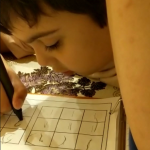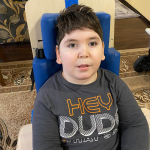Perfectionism and Autism
Autism is a multifaceted diagnosis often linked with other mental traits or behaviors, such as perfectionism. While often viewed negatively, perfectionism can become a strength with the right therapeutic approach, turning challenges into developmental opportunities.
In psychology, perfectionism refers to the pursuit of flawlessness and the rejection of imperfection. For autistic children, this can manifest in behaviors such as meticulously organizing toys by size, color, or pattern, or becoming upset by disruptions to routines or disorder in their surroundings.
Characteristics of Perfectionism in Autism:
Positive Traits:
-
- Attention to detail
- Strong organizational skills
- Motivation to achieve high standards
Challenges:
-
- Irritability in disorganized settings
- Aggression or withdrawal when routines are disrupted
- Difficulty accepting mistakes or criticism
- Unrealistic expectations
Turning Perfectionism into Strengths
Perfectionism in autism can enhance learning and self-development when harnessed correctly. Examples include:
- Education: Sorting words or concepts enhances memory and logical reasoning.
- Daily Life: Structured routines foster independence and build confidence.
- Self-Care: Attention to order can improve personal hygiene and tidiness.
By integrating these traits into structured therapies, parents can help children use perfectionism to their advantage.
Modern Approaches to Treatment
In addition to traditional methods, stem cell therapy offers promising results for treating autism. Clinics like the Mardaleishvili Medical Centre specialize in this cutting-edge approach, which aims to restore brain function at a cellular level. Benefits include:
- Enhanced outcomes compared to traditional therapies
- Long-lasting improvements when combined with educational programs
- Safe application with no significant side effects
With innovative therapies like stem cell treatment and a supportive environment, children with autism can thrive.
Autism Treatment Center Videos
Autism treatment with own stem cells
Cord blood association congress
International Quality Crown
Autism Treatment Reviews
Autism treatment with own stem cells
The story of Alessandro (6 years old)
Autism Patient Testimonial - Stem Cell Treatment
Clients Testimonials

Feedback from Igor, David’s father (12 years old) Read More

Feedback from Olga, Fedya’s mother Read More

Feedback from Natalia, Radomir’s mother (15 years old) Read More

Feedback from Esther, Samuel’s mother (8 years old) Read More

Feedback from Abibe, Selim’s mother (7 years old) Read More












